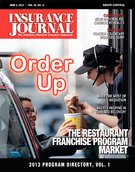Editor’s note: The following is the first of a two-part series on successful mediation practices. This segment covers preparation for mediation.
More litigation is resolved by mediation than by jury trials. Because of this, it is very important that insurance professionals understand the mediation process and learn how to make it effective.
William Moye, a Houston insurance defense attorney and a partner in the Houston office of Thompson Coe Cousins & Irons LLP, recently met with several of the most respected mediators in Houston to discuss their thoughts on successful mediation. Below is a summary of their suggestions, beginning with preparation.
Don’t Ignore Pre-Suit Mediation
Pre-suit mediation is often overlooked because the case facts are not fully developed and the parties’ positions have not yet been clarified. However, an early attempt to settle is often worthwhile as it may greatly limit the costs of handling the claim.
To be effective, pre-suit mediation requires a sophisticated decision-maker on the front-end of the claim to fully evaluate the dispute. The claims analyst needs to be fully involved from the outset to determine the potential liability based on the alleged facts. And you should not fear that requesting mediation pre-suit signals your financial surrender. If anything, it shows the opposing party that “we mean business” and we have an interest in offering a quick resolution to what is surely a weighty problem for them.
If a case is worth “X” the day it was filed, it will be worth “X” after nine months of discovery plus considerable professional fees. So, an attempt to resolve the case for “X” at the outset should be considered. Additionally, a party may want to consider pre-suit mediation when favorable liability facts do not exist but are then currently unknown to the opponent. If discovery will reveal these facts, and these facts may increase the settlement value of the case, then pre-suit or pre-discovery mediation also should be considered.
Preparing for Mediation
You get what you pay for. The cost of mediation can play a role in whether the parties opt for a half day or full day mediation. The incentive to cut costs while defending a lawsuit is always present. However, an attitude of always taking the cheaper route can have unintended consequences. While the half day is cheaper, it is not always the best route.
The facts of a case must be analyzed to determine what amount of time is needed to reach a settlement. This decision should be based on the complexity of the law and facts rather than how much the suit is worth. A simple case consisting of straightforward facts and legal standards likely warrants only a half-day of mediation. A full day is necessary if the case has complex facts, complex law and multiple disputed issues.
In a complex case, a half-day mediation may not provide sufficient time for the mediator, along with the parties, to parse out the disputes and come to an agreement. So instead of paying extra for a full-day session, the parties walk away without an agreement and continue to accumulate fees as the litigation proceeds. It is more beneficial to fully exhaust the mediation process to see if settlement is a viable option.
Sometimes both parties attend mediation to “feel out” where the other side is on the case and do not actually pursue settlement. Approaching mediation with this attitude is a waste of time that will have little or no benefit. Make sure you, your adjusters and your attorneys are familiar with the necessary facts before mediating.
Also, it is common for parties entering mediation to forego writing a memorandum or statement of the issues for the mediator. That is a mistake. A mediation memo can help speed up the mediation by providing a background of the case, as well as the applicable law that applies to the dispute.
The memo should be concise and get to the heart of the dispute. Mediators prefer this so they can feel knowledgeable about the case and mediate the dispute more efficiently.
Topics Lawsuits
Was this article valuable?
Here are more articles you may enjoy.


 Zurich Insurance’s Beazley Bid Sets the Stage for More Insurance Deals
Zurich Insurance’s Beazley Bid Sets the Stage for More Insurance Deals  Lawyer for Prominent Texas Law Firm Among Victims ID’d in Maine Plane Crash
Lawyer for Prominent Texas Law Firm Among Victims ID’d in Maine Plane Crash  The $3 Trillion AI Data Center Build-Out Becomes All-Consuming for Debt Markets
The $3 Trillion AI Data Center Build-Out Becomes All-Consuming for Debt Markets  Uber Jury Awards $8.5 Million Damages in Sexual Assault Case
Uber Jury Awards $8.5 Million Damages in Sexual Assault Case 


